How To Get Rid Of Swollen Lips: 11 Natural Remedies That Work
Soothe the painful swelling with some ice cubes, coconut oil, or aloe vera!

Image: Shutterstock

If you have woken up with swollen lips in the morning, you are not alone. External factors such as medications, allergic reaction to food, or insect bites, can contribute to unusually large and swollen lips. Although it is stressful to deal with this condition, there are natural remedies that can get rid of swollen lips effectively. In this article, we will explore the factors behind swollen lips and home remedies that can reduce them.
Note: Consult a doctor immediately if the swollen lips persist even after trying home remedies.
In This Article
Causes Of Swollen Lips
Swelling of the lips may happen due to any trauma to the soft tissue.
However, there are various other reasons that may cause swollen lips. Some of the common reasons are (1):
- Nutritional deficiencies
- Dehydration
- Viral infection
- Dryness
- Injury or cut
- Allergic reaction to a food product
- Insect bite
- Bad lip care products
- Extreme climatic conditions
Chris Pearce, a novelist, recounts a strange way his lips got swollen on his blog: “My first episode was about a month after my wife and I soaked our feet in water with cayenne pepper. It was supposed to get rid of colds. It did that alright. I didn’t have a proper cold for perhaps a decade. Instead, my lips would swell up to several times their normal size (i).”
Often, swollen lips may be accompanied by cuts and bleeding. This may make it difficult for the person to eat, drink, or talk properly. Use the remedies listed below to treat this condition.
Key Takeaways
- To reduce swelling and dull or relieve the pain, apply an ice pack or cold compress. You can also apply tea bags or a solution of salt and water to the area to reduce swelling.
- To calm and hydrate the affected region, use honey or aloe vera gel. These may help banish or remove swelling and pain.
- Water is essential for keeping the body hydrated and lowering edema.
- Avoid meals that can irritate your lips, such as spicy, salty, or acidic foods.
- To keep the lips hydrated, dab them lightly with petroleum jelly or coconut oil.
- Use topical creams with hydrocortisone that are available without a prescription.
Home Remedies For Swollen Lips
Swollen lips can be uncomfortable and unsightly, but fortunately, there are several ways to fix them. In this section, we will share some readily available natural remedies to get rid of swollen lips. However, note that some people may experience adverse reactions to the ingredients listed here, as natural ingredients can also cause allergies. Therefore, do a patch test before use to avoid any potential side effects.
- Ice Cubes
- Warm Water
- Turmeric Powder
- Aloe Vera
- Baking Soda
- Honey
- Witch Hazel Extract And Salt
- Tea Tree Oil And Aloe Vera
- Coconut Oil
- Epsom Salt
- Apple Cider Vinegar
1. Ice Cubes
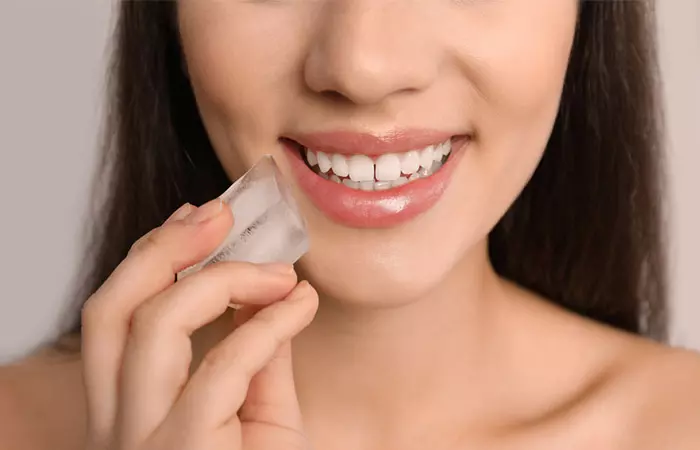
Ice may reduce edemai A swelling caused by excess fluid trapped in the body’s tissues, usually those in the legs and feet. by decreasing the amount of blood flowing to the affected site (2). One way to eradicate swollen lips is by applying ice cubes. Using ice cubes on the affected area may help in healing the swollen lips.
You Will Need
- 1-2 ice cubes
- A soft washcloth
What You Have To Do
- Wrap the ice cubes in the wash cloth and press the ice pack gently on the affected area for 8-10 minutes.
- Take a break of 10 minutes and repeat the process.
How Often You Should Do This
Repeat every few hours.
Note: Avoid applying ice cubes directly on the skin as it may result in mild frostbite or soreness.
 Quick Tip
Quick Tip2. Warm Water
Warm water therapy promotes blood circulation in the human body (3). Applying warm water on the affected area may cure swollen lips. It may also soothe or alleviate the pain one might experience from the swelling.
You Will Need
- Warm water
- A washcloth
What You Have To Do
- Soak the washcloth in warm water and wring out the excess water from the cloth.
- Place the washcloth on the lips for 8-10 minutes.
How Often You Should Do This
Repeat this process every hour (if required).
Note: Ensure the water is not too hot, as excessive heat can cause burns on the lips.
3. Turmeric Powder
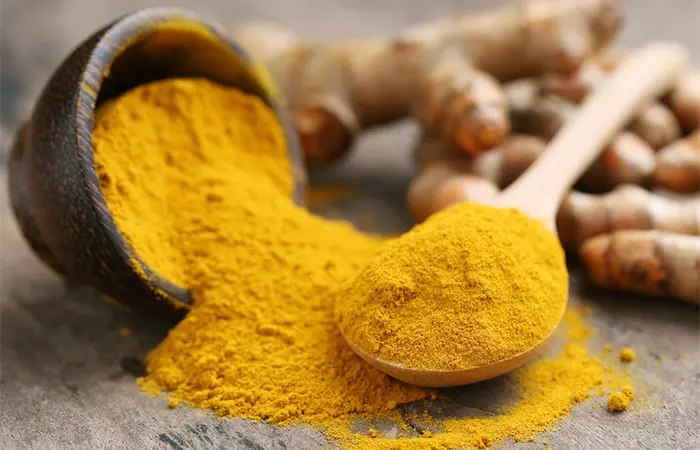
The curcumin present in turmeric exhibits anti-inflammatory properties (4). Turmeric is also known for its antiseptic and healing properties (5). Hence, using turmeric powder may help in treating swollen lips.
You Will Need
- Fuller’s earth
- Turmeric powder
- Cold water
What You Have To Do
- Prepare a herbal ointment by mixing turmeric powder with Fuller’s earth and cold water.
- Apply the prepared ointment on the swollen area.
- Allow it to dry completely.
- Wash your lips with lukewarm water.
How Often You Should Do This
Do this 2 times a day.
Note: Turmeric can stain your lips. Therefore, use it with caution.
4. Aloe Vera
Aloe vera exhibits anti-inflammatory and healing properties (6). Using aloe vera may reduce swollen lips caused by mosquito bite, insect bite, or allergic reactions.
You Will Need
Aloe Vera Leaf
What You Have To Do
- Extract the aloe vera gel present inside the leaf.
- Apply a small amount of gel on the affected area and massage gently.
- Leave it on for as long as possible.
How Often You Should Do This
Do this 2 times a day.
5. Baking Soda
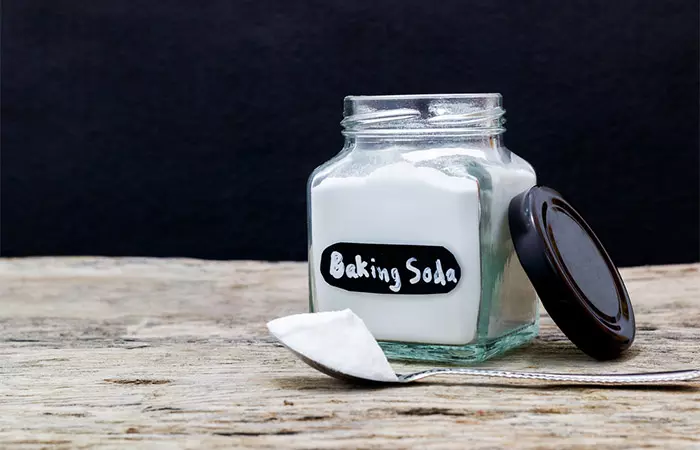
Baking soda exhibits antibacterial and anti-inflammatory properties (7). It may help in treating swollen lips caused due to fever blisters, allergic reactions, or insect bites.
You Will Need
- Baking soda
- Water
What You Have To Do
- Mix the baking soda with some water.
- Apply a thick coat of this paste on the swollen area.
- Keep it on for 10 minutes and wash it off with cold water.
How Often You Should Do This
Do this once every 3-4 hours.
Note: Baking soda can be harsh and drying on the skin, leading to irritation. Always follow it up with a moisturizer.
6. Honey
Honey has natural healing and antibacterial properties (8). It may also help soothe any itching irritation that may accompany a swollen lip and help diminish swelling.
You Will Need
- Honey
- Cotton ball or cotton swab
What You Have To Do
- Use a cotton ball to apply honey on the affected area.
- Wash it off with cold water after 20 minutes.
How Often You Should Do This
Do this 2-3 times a day.
7. Witch Hazel
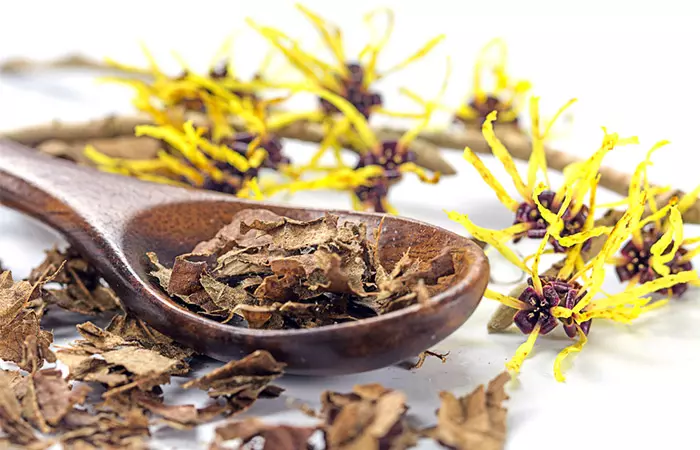
Witch hazel is a popular astringenti The property of a substance or a chemical that constricts body tissues and skin cells by reducing excess moisture from them. that cleans and disinfects the skin surface (9). It may reduce the inflammation around the swollen lips.
You Will Need
- Witch hazel extract
- Salt
- Cotton ball
What You Have To Do
- Mix salt and witch hazel.
- Apply the mixture to the affected area with a cotton ball.
- Rinse it off with cool water after 30 minutes.
How Often You Should Do This
Do this 1-2 times a day.
Note: Witch hazel can be harsh and drying. Always follow it up with a moisturizer. Also, avoid using it on peeled or broken skin.
8. Tea Tree Oil
Tea tree oil is a strong antimicrobial agent (10). It may help reduce swelling caused by infections and insect bites.
You Will Need
- A few drops of tea tree oil
- 1 teaspoon of aloe vera gel
What You Have To Do
- Mix a few drops of tea tree oil and a teaspoon of aloe vera gel.
- Apply this mixture on the lips and massage gently for a minute or two.
- Rinse with cool water after 10 minutes.
How Often You Should Do This
Do this 1-2 times a day.
Note: Tea tree oil is highly potent and can cause irritation, redness, or burning if applied directly. To avoid this, always dilute it before use. Also, perform a patch test before use to ensure you are not allergic to it.
9. Coconut Oil
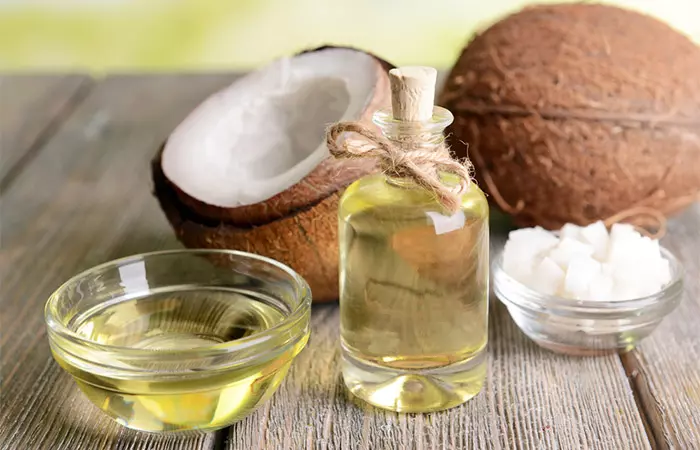
The lauric acidi A natural fatty acid found in animal fats and vegetable oils that helps moisturize and nourish the skin. in coconut oil exhibits strong antimicrobial properties (11). These properties may eliminate harmful bacteria, fungi, or viruses while absorbing all impurities from the skin pores. It may also act as an emollienti A common ingredient in a skin care routine that helps retain moisture in the skin through a protective barrier. and keep the skin nourished and supple.
You Will Need
Organic coconut oil
What You Have To Do
- Massage a few drops of coconut oil on the swollen lips.
- Leave it on for a couple of hours.
How Often You Should Do This
Do this once a day until the swelling goes down.
10. Epsom Salt
It is believed that Epsom salt may soothe the swollen lips and help them heal quickly. However, there is no scientific research to back this claim.
You Will Need
- 1 tablespoon of Epsom salt
- 1 cup of warm water
- Washcloth
What You Have To Do
- Mix the Epsom salt in the water and dip the washcloth in this solution.
- Place the washcloth dipped in the warm water on the swollen lips for 15 minutes.
How Often You Should Do This
Do this procedure a few times a day until swelling subsides.
11. Apple Cider Vinegar
Apple cider vinegar is believed to have anti-inflammatory properties (12). Hence, it may help in treating swollen lips.
You Will Need
- 1 teaspoon of apple cider vinegar
- 1 teaspoon of water
- Cotton ball
What You Have To Do
- Dilute the apple cider vinegar and apply it on the lips with the cotton ball.
- Leave it on for a couple of minutes.
- Rinse with water.
How Often You Should Do This
Do this 2 times a day.
Note: Apple cider vinegar is highly acidic and can cause a burning sensation, especially on sensitive or cracked lips. Always dilute it before application.
These are some effective methods you can try to help solve swelling lips problems.
However, if these home remedies to get rid of swollen lips do not help reduce the swelling, you might have to consider using medical help.
Medical Treatments For Swollen Lips
There are a few over-the-counter treatments you can try at home for swollen lips. Antihistamines can help if your swelling is due to an allergic reaction. Hydrocortisone cream may also help reduce inflammation. Keeping your lips moisturized with a gentle lip balm can prevent further irritation. Always read the instructions on any medication you choose to use. You can also use a cold compress to reduce swelling and soothe discomfort.
However, if you experience symptoms for a long time, then it is best to visit your doctor.
When To See A Doctor For Swollen Lips
Consult your healthcare provider or doctor if you experience any of the following issues:
- If the swelling does not improve within a day or two.
- If you are experiencing difficulty in breathing or speaking.
- If you have a history of known allergies and suspect that the swollen lips are due to exposure to one of the known allergens.
- If you experience recurrent or painful swelling and develop other symptoms like dizziness, itchiness, irritation, or hives.
 Quick Tip
Quick TipInfographic: Top 5 Easy Home Remedies To Manage Swollen Lips
Whether the swollen lips are caused by an injury, allergic reaction, or a bug bite, you can use any remedy from the list to quell or ease the discomfort they cause. However, a few of them are really effective and show faster results. Check out the infographic below to learn more about them.
Some thing wrong with infographic shortcode. please verify shortcode syntax
Swelling of the lips generally occurs as a result of any trauma to the soft tissue of the lips. Nutritional deficiencies, infections, injury, harsh climatic conditions, and allergic reactions are a few of the most common causes of swollen lips. Common home remedies to get rid of swollen lips include ice cubes, aloe vera, honey, coconut oil, or witch hazel extract with salt. Along with your preferred home remedy, it is important that you also follow and balanced and healthy diet rich in vitamins. In case your lips continue to remain swollen despite using appropriate home remedies, consult your healthcare provider.
Frequently Asked Questions
What are the long-term effects of untreated swollen lips?
Untreated swollen lips can lead to several long-term effects. You might experience persistent discomfort or pain, making it hard to eat or talk. If the swelling is due to an allergy, it could worsen with repeated exposure. In some cases, untreated swelling may lead to scarring or changes in lip texture. It is important to address the underlying cause to avoid these potential issues.
What are the symptoms of swollen lips?
The main symptom is a localized swelling of the lips that may or may not be accompanied by pain. As a result of this, you may experience difficulty in talking, eating, drinking, and even opening your mouth. Some other symptoms include chapped lips, blisters, lip discoloration, and headache. You may also experience fatigue and tiredness.
How long does it take for your lip to heal if you cut it with your tooth?
A bruise or cut may develop at the site of injury on the lip. Depending on how badly your lip is injured, it may take a week to 15 days to heal completely.
Why is my lip piercing making my lip swell?
When a lip is pierced, there are chances that harmful bacteria were introduced at that site. This causes an infection, which leads to your lips swelling up and also hurting. It is essential to give this immediate attention and maintain proper oral hygiene. This issue may need medical attention, so please check with your doctor if swelling persists.
Can too much kissing cause swollen lips?
When the kissing is too intense, it can cause irritation and also damage the blood vessels in your lips, causing them to swell.
Can lip swelling be caused by stress?
Possibly. Swelling (angioedema) may be caused by emotional stress along with vigorous exercise and hormonal factors (13).
How to get rid of swollen lips overnight?
If the swelling is minimal and isn’t caused by serious allergic reactions or medical conditions, using ice cubes or warm water may help get rid of it in 1-2 days or overnight.
Illustration: Home Remedies To Get Rid Of Swollen Lips
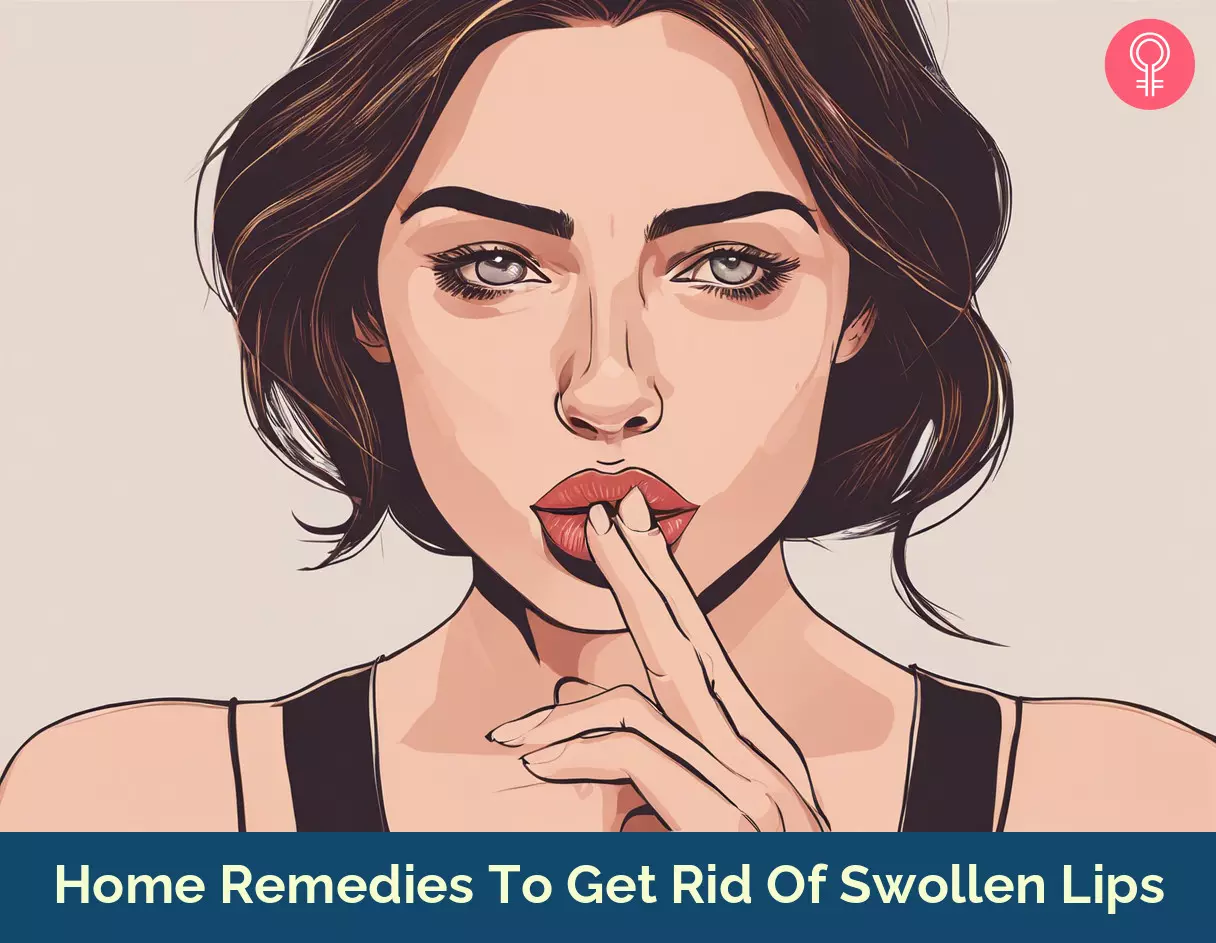
Image: Stable Diffusion/StyleCraze Design Team
Swollen lips can be caused by angioedema, a condition discussed in this informative video. Check it out to learn about the common triggers and causes of this condition.
Personal Experience: Source
StyleCraze's articles are interwoven with authentic personal narratives that provide depth and resonance to our content. Below are the sources of the personal accounts referenced in this article.
i. Allergic reaction: Swollen lips;https://chrispearce52.wordpress.com/2015/07/18/allergic-reaction-swollen-lips/
References
Articles on StyleCraze are backed by verified information from peer-reviewed and academic research papers, reputed organizations, research institutions, and medical associations to ensure accuracy and relevance. Read our editorial policy to learn more.
- Beenish S. Bhutta et al. “Cheilitis” Treasure Island (FL): StatPearls Publishing; 2025 Jan.
https://pubmed.ncbi.nlm.nih.gov/12208913/ - Deal, D Nicole et al. “Ice reduces edema. A study of microvascular permeability in rats.” The Journal of bone and joint surgery. American volume vol. 84,9 (2002): 1573-8.
https://pubmed.ncbi.nlm.nih.gov/12208913/ - Mooventhan, A, and L Nivethitha. “Scientific evidence-based effects of hydrotherapy on various systems of the body.” North American journal of medical sciences vol. 6,5 (2014): 199-209.
https://www.ncbi.nlm.nih.gov/pmc/articles/PMC4049052/ - Thangapazham, Rajesh L et al. “Beneficial role of curcumin in skin diseases.” Advances in experimental medicine and biology vol. 595 (2007): 343-57.
https://pubmed.ncbi.nlm.nih.gov/17569219/ - Perrone, Donatella, et al. “Biological and therapeutic activities, and anticancer properties of curcumin.” Experimental and therapeutic medicine 10.5 (2015): 1615-1623.
https://www.spandidos-publications.com/10.3892/etm.2015.2749 - Surjushe, Amar et al. “Aloe vera: a short review.” Indian journal of dermatology vol. 53,4 (2008): 163-6.
https://www.ncbi.nlm.nih.gov/pmc/articles/PMC2763764/ - Drake, D. “Antibacterial activity of baking soda.” Compendium of continuing education in dentistry. (Jamesburg, N.J. : 1995). Supplement vol. 18,21 (1997): S17-21;quiz S46.
https://pubmed.ncbi.nlm.nih.gov/12017929/ - Cooper, Rose. “Honey in wound care: antibacterial properties.” GMS Krankenhaushygiene interdisziplinar vol. 2,2 Doc51. 28 Dec. 2007
https://www.ncbi.nlm.nih.gov/pmc/articles/PMC2831240/ - Thring, Tamsyn Sa et al. “Antioxidant and potential anti-inflammatory activity of extracts and formulations of white tea, rose, and witch hazel on primary human dermal fibroblast cells.” Journal of inflammation (London, England) vol. 8,1 27.
https://www.ncbi.nlm.nih.gov/pmc/articles/PMC3214789/ - Carson, C F et al. “Melaleuca alternifolia (Tea Tree) oil: a review of antimicrobial and other medicinal properties.” Clinical microbiology reviews vol. 19,1 (2006): 50-62.
https://www.ncbi.nlm.nih.gov/pmc/articles/PMC1360273/ - Dayrit, Fabian M. “The properties of lauric acid and their significance in coconut oil.” Journal of the American Oil Chemists’ Society 92.1 (2015): 1-15
https://link.springer.com/article/10.1007/s11746-014-2562-7 - Youness El Abdali at al. “Exploring the Bioactive Compounds in Some Apple Vinegar Samples and Their Biological Activities.” Plants (Basel). 2025 Nov 14;12(22):3850.
https://pmc.ncbi.nlm.nih.gov/articles/PMC10675503/ - Angioedema
https://www.ncbi.nlm.nih.gov/pmc/articles/PMC3651192/
Read full bio of Vd. Naveen Sharma
Read full bio of Sucharita Mishra
Read full bio of Ramona Sinha
Read full bio of Monomita Chakraborty






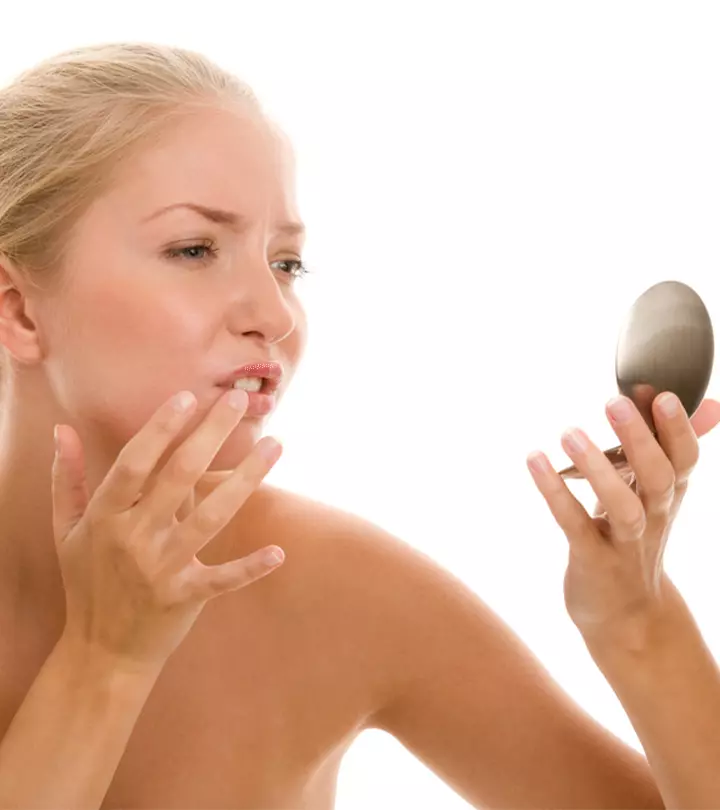
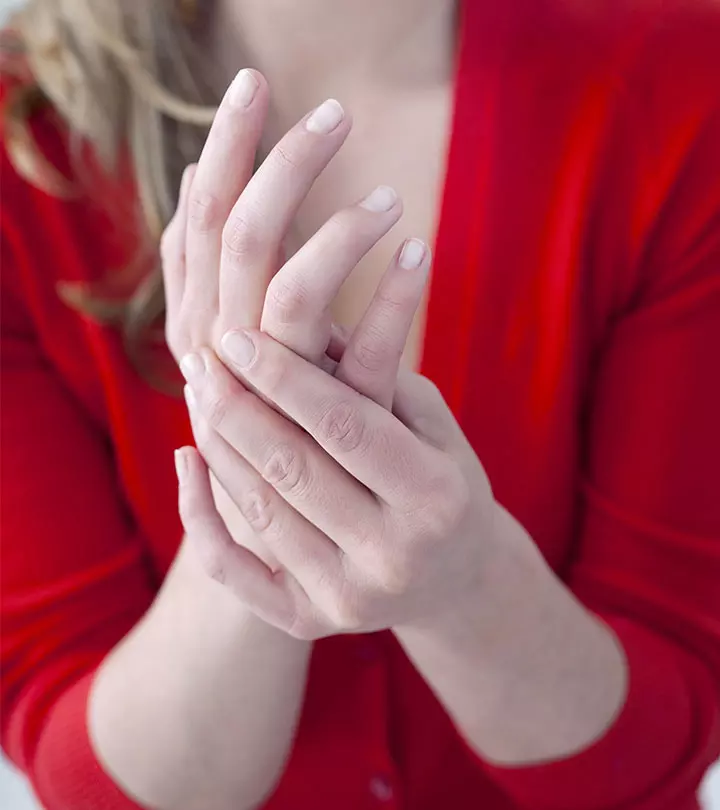


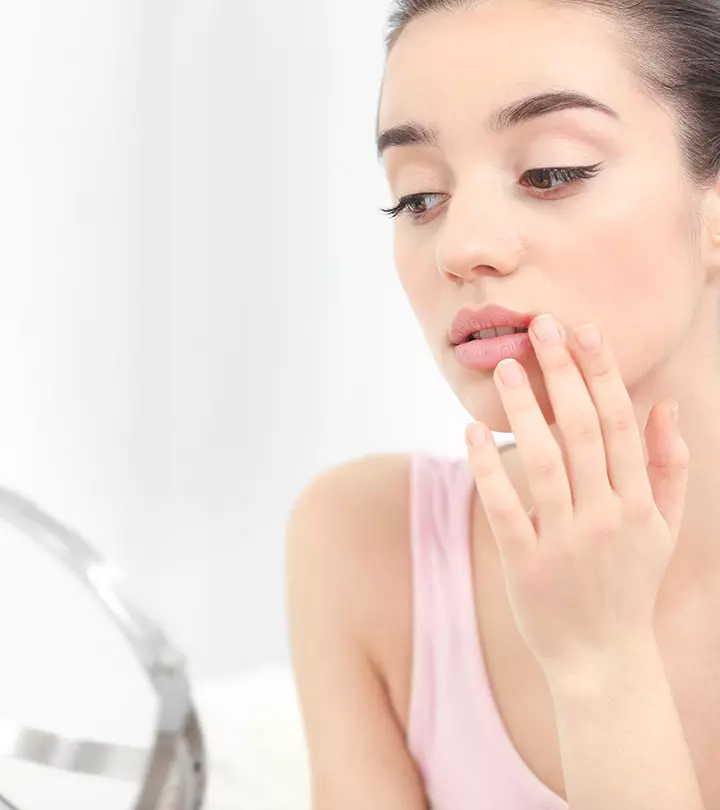
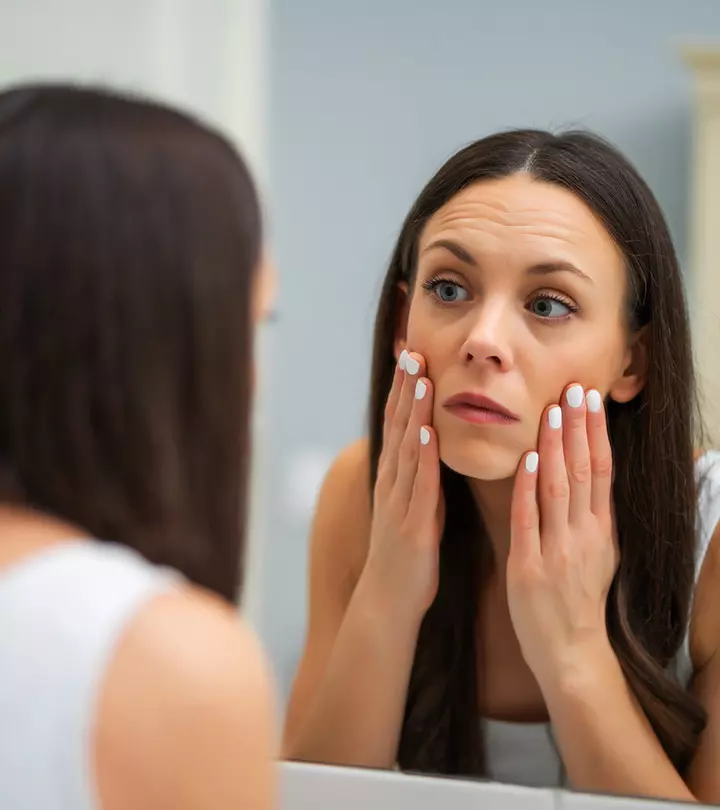
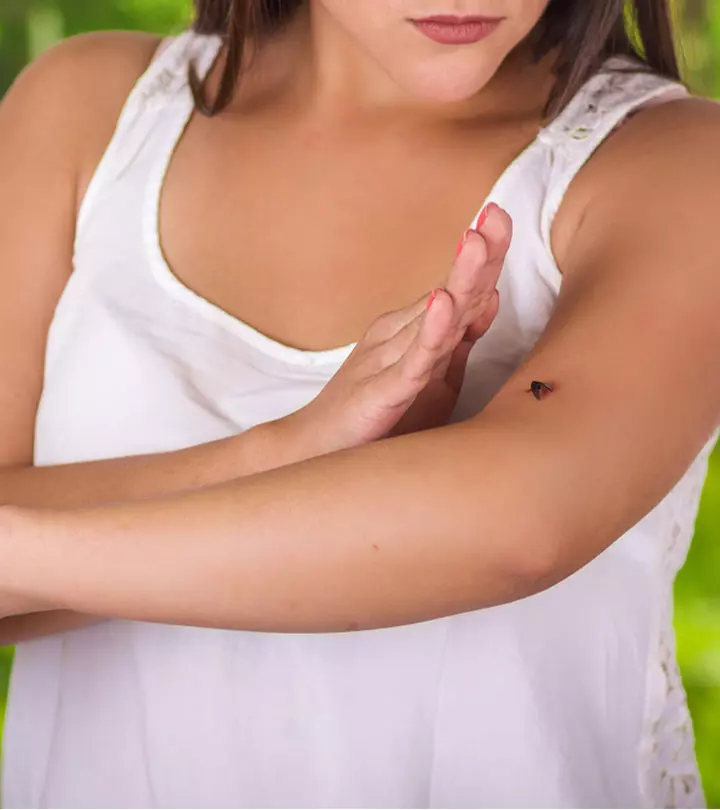






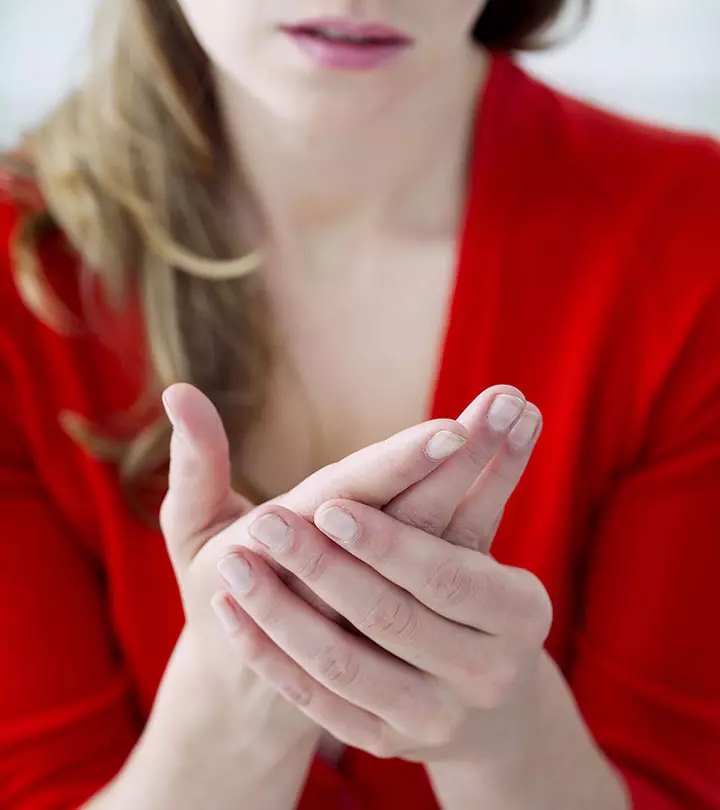
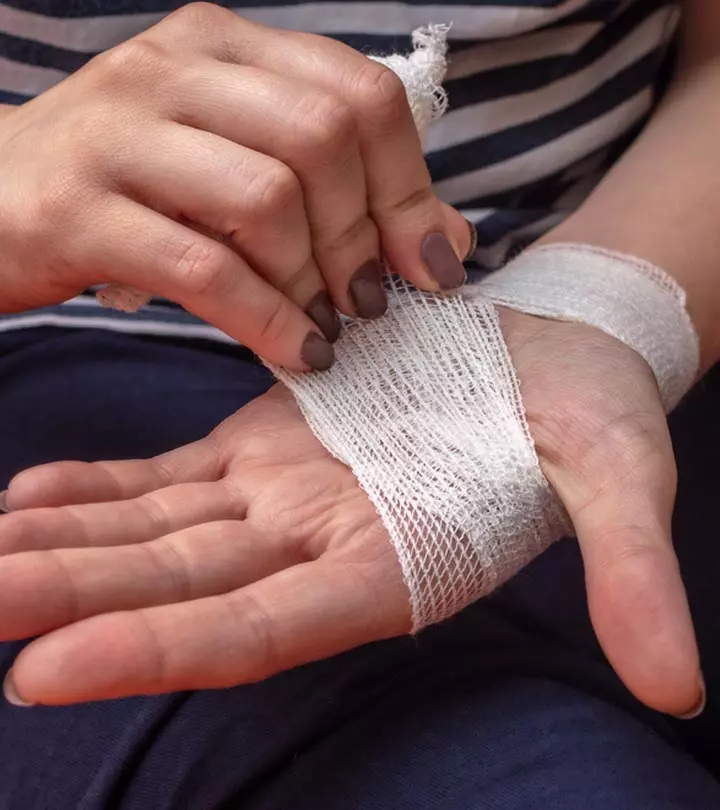


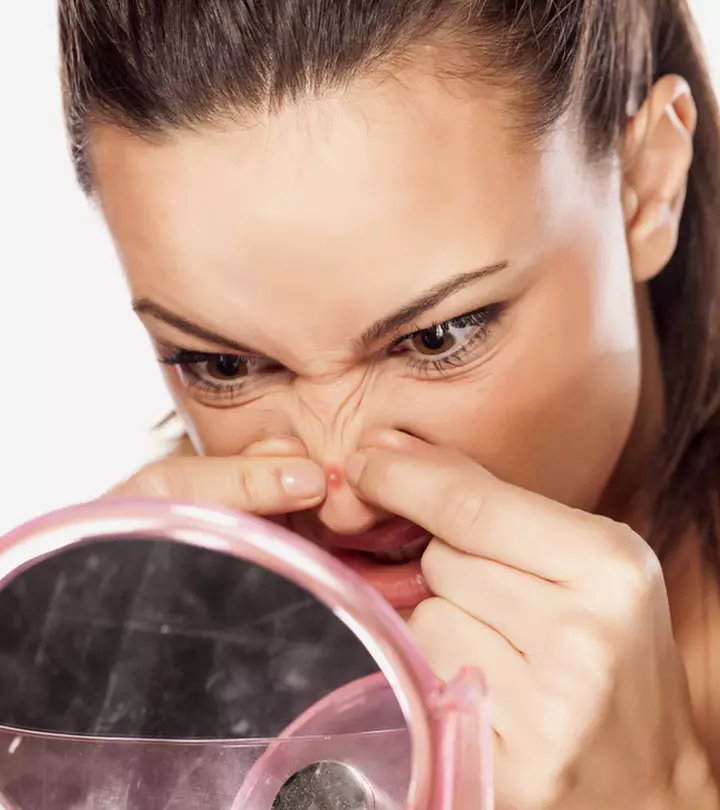


Community Experiences
Join the conversation and become a part of our empowering community! Share your stories, experiences, and insights to connect with other beauty, lifestyle, and health enthusiasts.